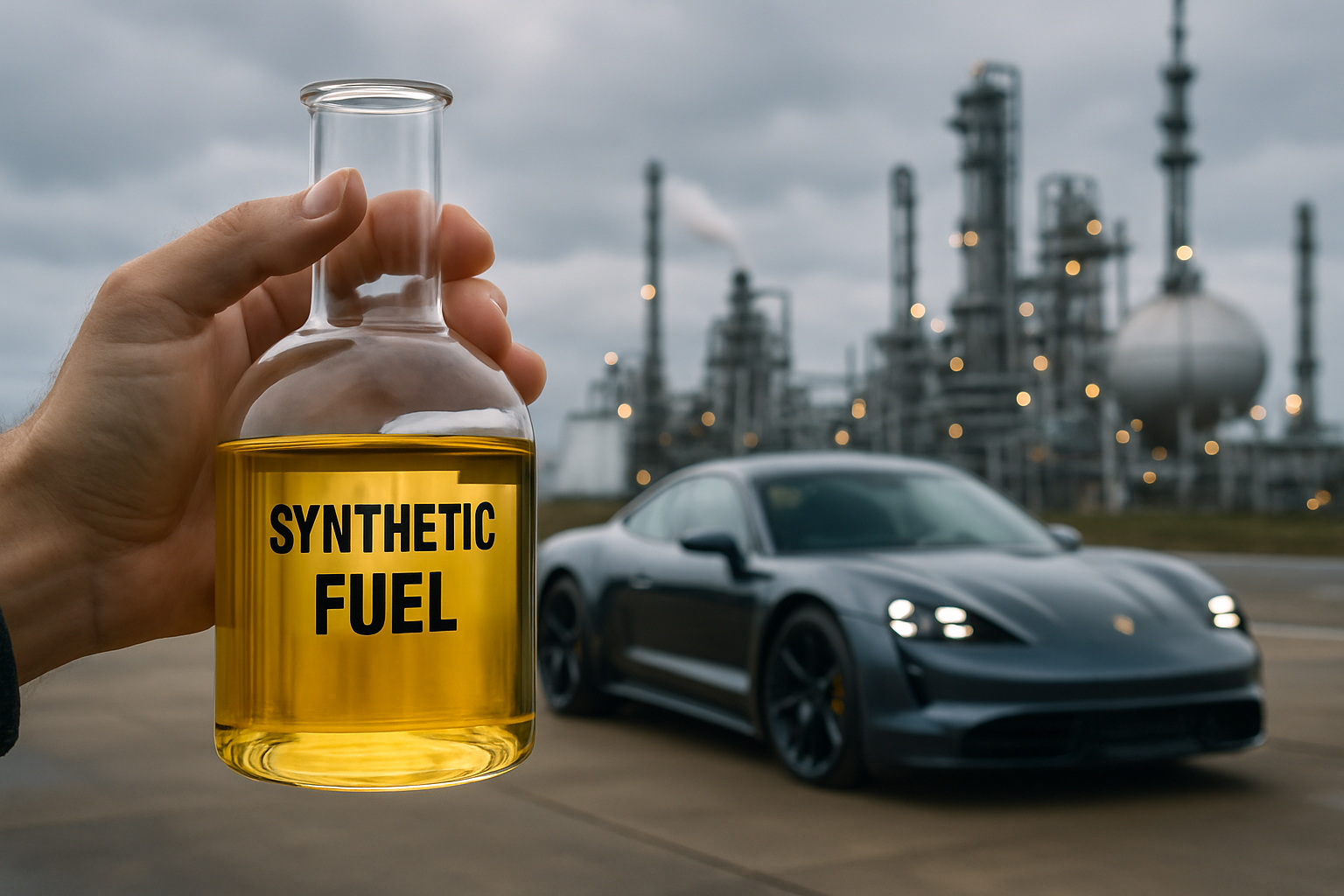Synthetic Fuels: The Dark Horse of Sustainable Motoring
In a world racing towards electrification, a lesser-known contender is quietly making strides in the realm of sustainable automotive technology. Synthetic fuels, also known as e-fuels or synfuels, are emerging as a potential game-changer in the quest for greener mobility. This innovative approach to fuel production promises to keep internal combustion engines relevant in an increasingly eco-conscious automotive landscape. But what exactly are synthetic fuels, and could they truly revolutionize the way we power our vehicles?

The production process begins with renewable electricity powering water electrolysis to produce hydrogen. This hydrogen is then combined with CO2 in a process called Fischer-Tropsch synthesis, resulting in a hydrocarbon fuel that can be refined into gasoline, diesel, or jet fuel. The beauty of this process lies in its potential to be entirely carbon-neutral, as the CO2 released during combustion is offset by the CO2 captured during production.
Compatibility with Existing Infrastructure: A Major Advantage
One of the most significant advantages of synthetic fuels is their compatibility with existing internal combustion engines and fuel distribution infrastructure. Unlike the shift to electric vehicles, which requires massive investments in new charging infrastructure and vehicle production, synthetic fuels can be used in current vehicles with little to no modification.
This compatibility extends to the entire fuel supply chain, from refineries to gas stations. The ability to utilize existing infrastructure could potentially accelerate the adoption of this greener fuel alternative, especially in regions where electric vehicle adoption faces challenges due to limited charging infrastructure or grid capacity.
Performance and Efficiency: Matching Conventional Fuels
Contrary to some misconceptions, synthetic fuels can match or even exceed the performance characteristics of conventional fossil fuels. The precise control over the fuel’s chemical composition during the production process allows for optimization of energy density, combustion efficiency, and emissions profile.
In high-performance applications, synthetic fuels have already proven their worth. Several racing series, including Formula 1, are exploring the use of synthetic fuels as a way to reduce their carbon footprint while maintaining the high-octane excitement of motorsport. This real-world testing ground provides valuable data and pushes the boundaries of synthetic fuel technology, potentially leading to improvements that could benefit everyday drivers.
Environmental Impact: Beyond Carbon Neutrality
While the carbon-neutral potential of synthetic fuels is their primary environmental selling point, their benefits extend beyond just CO2 emissions. The production process can be fine-tuned to create fuels that burn cleaner than their fossil-derived counterparts, potentially reducing other harmful emissions such as particulate matter and nitrogen oxides.
Furthermore, synthetic fuel production could be strategically located to take advantage of renewable energy sources that might otherwise go unused. For instance, solar farms in desert regions or wind farms in remote areas could power synthetic fuel plants, effectively storing renewable energy in a liquid form that can be easily transported and used.
Challenges and Criticisms: The Road Ahead
Despite their potential, synthetic fuels face several hurdles on the path to widespread adoption. The primary challenge is the energy-intensive nature of the production process, which currently makes synthetic fuels significantly more expensive than conventional fuels or even electric vehicle charging.
Critics argue that the energy used to produce synthetic fuels would be more efficiently used directly in electric vehicles. However, proponents counter that synthetic fuels offer a solution for applications where electrification is challenging, such as aviation, long-haul trucking, and existing vehicle fleets.
Another concern is the scalability of carbon capture technology, which is crucial for sourcing the CO2 needed for synthetic fuel production. Advancements in this field will be necessary to make synthetic fuels a viable large-scale solution.
The Future of Motoring: A Diverse Energy Landscape
As the automotive world grapples with the challenge of sustainability, it’s becoming clear that there may not be a one-size-fits-all solution. While electric vehicles are making significant inroads, synthetic fuels offer an intriguing alternative that could help decarbonize sectors of transportation that are difficult to electrify.
The future of motoring is likely to be a diverse energy landscape, with different solutions suited to different applications. Synthetic fuels could play a crucial role in this ecosystem, offering a bridge between the internal combustion engines of today and the zero-emission vehicles of tomorrow.
As research and development in this field continue to accelerate, we may soon see synthetic fuels playing a larger role in our daily drives, keeping the familiar roar of engines alive while significantly reducing their environmental impact. The road to sustainable motoring is complex, but synthetic fuels offer a promising path forward, blending the best of traditional automotive technology with innovative, eco-friendly solutions.




